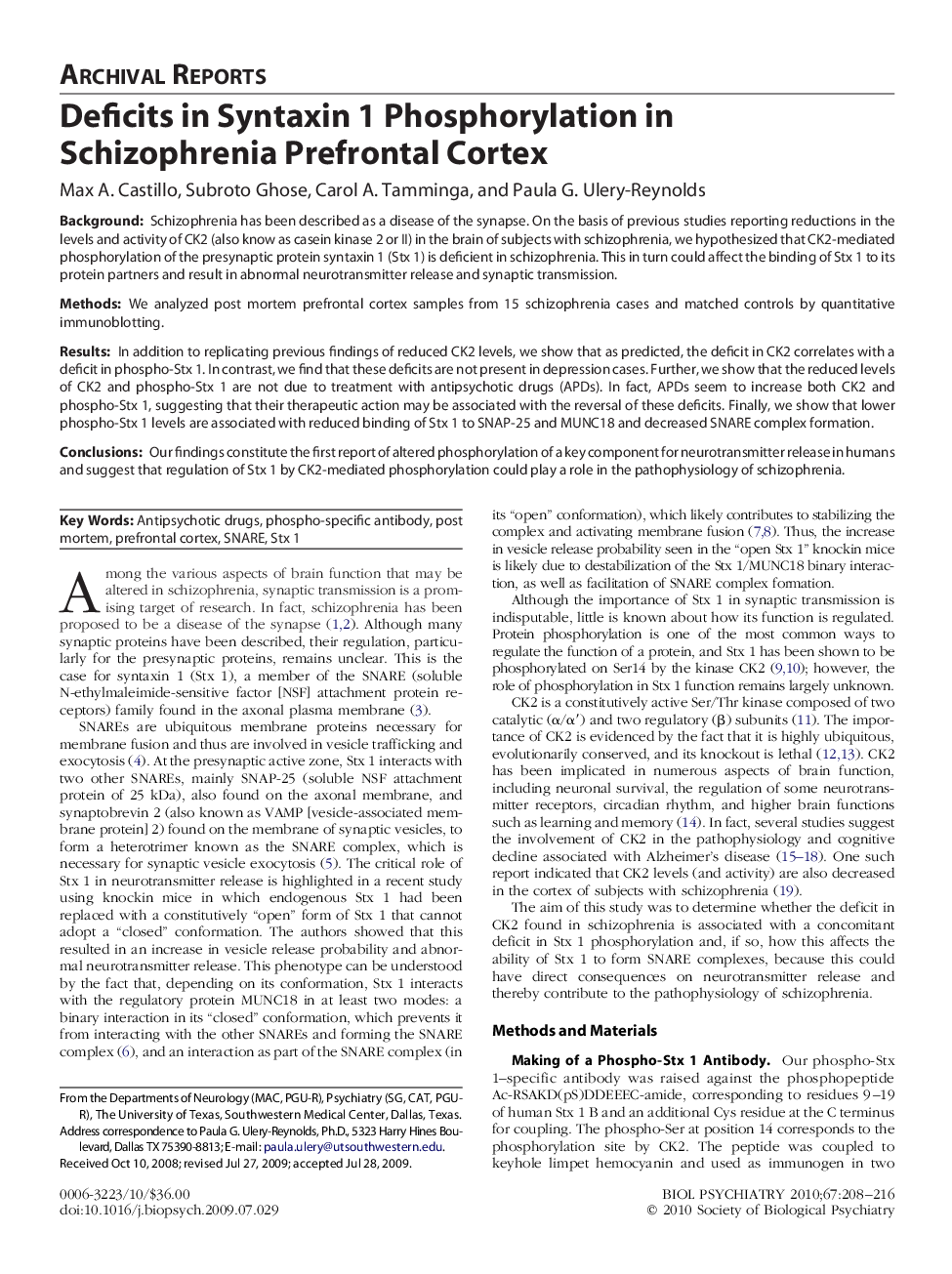| Article ID | Journal | Published Year | Pages | File Type |
|---|---|---|---|---|
| 4179036 | Biological Psychiatry | 2010 | 9 Pages |
BackgroundSchizophrenia has been described as a disease of the synapse. On the basis of previous studies reporting reductions in the levels and activity of CK2 (also know as casein kinase 2 or II) in the brain of subjects with schizophrenia, we hypothesized that CK2-mediated phosphorylation of the presynaptic protein syntaxin 1 (Stx 1) is deficient in schizophrenia. This in turn could affect the binding of Stx 1 to its protein partners and result in abnormal neurotransmitter release and synaptic transmission.MethodsWe analyzed post mortem prefrontal cortex samples from 15 schizophrenia cases and matched controls by quantitative immunoblotting.ResultsIn addition to replicating previous findings of reduced CK2 levels, we show that as predicted, the deficit in CK2 correlates with a deficit in phospho-Stx 1. In contrast, we find that these deficits are not present in depression cases. Further, we show that the reduced levels of CK2 and phospho-Stx 1 are not due to treatment with antipsychotic drugs (APDs). In fact, APDs seem to increase both CK2 and phospho-Stx 1, suggesting that their therapeutic action may be associated with the reversal of these deficits. Finally, we show that lower phospho-Stx 1 levels are associated with reduced binding of Stx 1 to SNAP-25 and MUNC18 and decreased SNARE complex formation.ConclusionsOur findings constitute the first report of altered phosphorylation of a key component for neurotransmitter release in humans and suggest that regulation of Stx 1 by CK2-mediated phosphorylation could play a role in the pathophysiology of schizophrenia.
